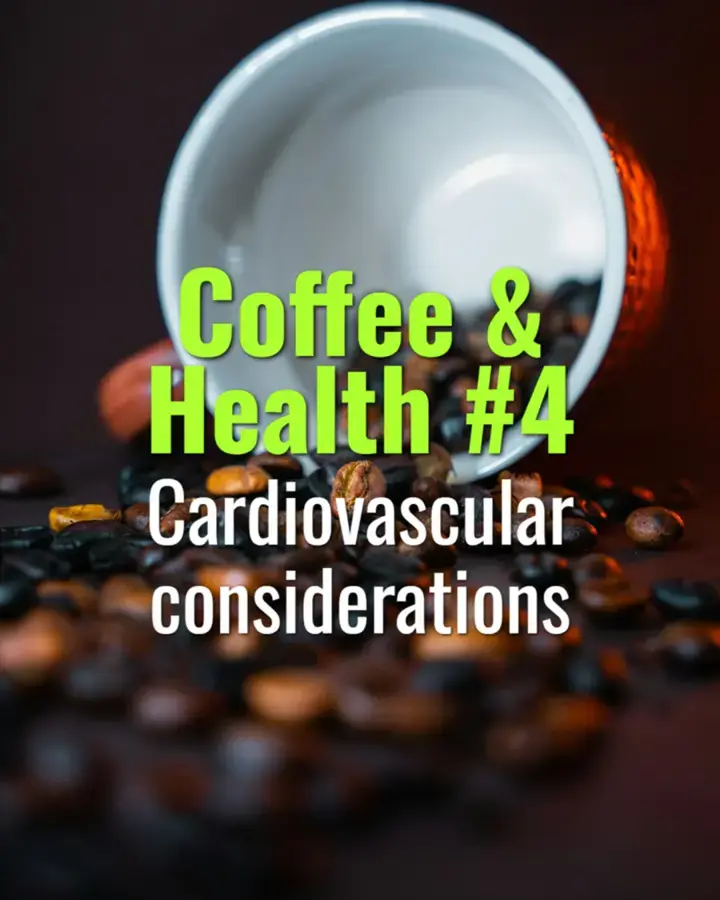Cardiovascular considerations
How coffee consumption interacts with cardiovascular health, including effects on blood pressure, heart rhythm, and long-term risk factors.
- Coffee Basics Nerds
- 2 min read
Article 4 of 12 in Coffee & Health/

Blood Pressure
- Acute Effects: Caffeine can cause a short-term rise in blood pressure (5–10 mmHg) in sensitive individuals or those unaccustomed to coffee.
- Long-Term Effects: Regular drinkers often develop tolerance, with little to no sustained elevation.
Heart Rate & Arrhythmia
- Caffeine increases alertness but does not consistently raise resting heart rate.
- Large studies show no strong link between moderate coffee intake and arrhythmias in healthy individuals.
- Some evidence suggests protective effects against atrial fibrillation with habitual consumption.
Cholesterol & Lipids
- Unfiltered coffee (French press, Turkish, espresso) contains cafestol and kahweol, diterpenes that can raise LDL cholesterol.
- Paper-filtered coffee removes most diterpenes, lowering this risk.
Cardiovascular Disease Risk
- Meta-analyses suggest moderate coffee consumption (3–4 cups/day) is associated with reduced risk of coronary heart disease and stroke.
- Protective effects may be linked to antioxidants, anti-inflammatory compounds, and improved endothelial function.
Individual Considerations
- Hypertension: People with uncontrolled high blood pressure should monitor intake.
- Slow Caffeine Metabolizers (CYP1A2 variants): Higher risk of negative cardiovascular effects from heavy coffee consumption.
- Pregnancy & Heart Conditions: Lower caffeine intake recommended to minimize risk.
Summary
Coffee’s cardiovascular effects are complex but generally neutral to beneficial in moderate amounts. Short-term blood pressure rises are common, but long-term studies show reduced heart disease and stroke risk, especially when coffee is filtered. Individual genetics, health conditions, and brewing methods influence outcomes.